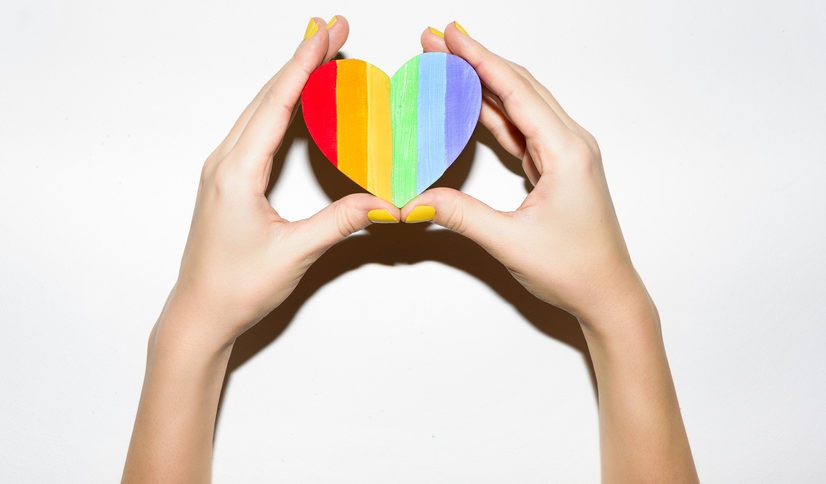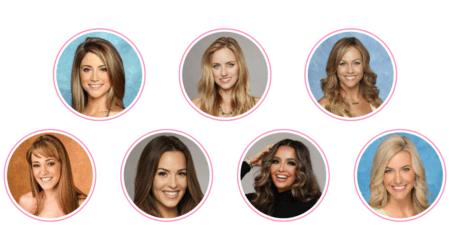
When I first started trying to get pregnant, I wanted to seek as much support as possible, especially as I was doing this on my own. I became active in online chat forums through Resolve (the National Infertility Association) and Single Mothers By Choice (SMC), and attended in-person support groups through the Gay Center and Resolve.
After a few failed IUI attempts, however, it became painful to attend any support group that wasn’t focused on infertility. At the Gay Center support group, for example, women were typically getting pregnant with their first one-to-three IUI attempts, while I was left grappling with a high FSH number, a restrictive insurance company (who wouldn’t cover my infertility treatments because I hadn’t “tried with a man first”), and big questions like which doctor I could trust and what my next move should be. I quickly dropped out of the support groups for LGBTQ and Single Mother by Choice communities and centered my efforts on fertility-focused meetings offered through Resolve.
However, in the Resolve support groups I was always the only LGBTQ person in attendance. Over the years I struggled with infertility, I developed close friendships with many straight couples, most of whom I met at the group meetings. While it didn’t matter that we had different sexual orientations, I did notice some interesting variations in expectations between me and my fellow #ivfwarriors. Coming out as queer at a young age may have helped prepare me, in some ways, for some of the difficulties of non-traditional family-building.
Perhaps my experiences can help reduce some of the pain and burden of the infertility process for others.
Here are three things I think straight people can learn from the LGBTQ community about dealing with infertility challenges.
1. Celebrate Being “Outside of the Box”
Many of my straight friends had to grieve that for the first time in their lives, they felt different from their friends in a major way. They were shocked, shamed, and maybe even horrified that life was not going as planned. You know how it goes…as soon as you start struggling with fertility, all your friends get knocked up (and have the audacity to complain about it), Facebook is nothing but adorable baby photos, and practically every woman on the street is strutting her pregnancy bump.
Up to then many of my straight friends had been able to follow a relatively “straight” path in life without too many curve balls. They worked on a career, fell in love, got a legally sanctioned marriage, and started trying to have kids. Admittedly, everyone, straight or queer deals with challenges and painful life situations, but when it came to big goals such as career, love, and family, they mainly fit into the box and were accustomed to things moving fairly smoothly.
On the other hand, as a queer woman, by high school I had already started feeling like I didn’t fit in. I read feminist literature with a vengeance, refused to shave, thought love songs were ideologically stupid, and felt completely bored by parties and conversations my straight friends were engaged in.
At a young age, I was already taking that sharp turn off the beaten path. Around that time, I did go through feelings of shame about being different. The key for me was connecting with a queer community (whether through podcasts, books, events, and, most importantly, making new friends) because it relieved any shame, and helped me find pride and beauty in my difference.
While it didn’t matter that we had different sexual orientations, I did notice some interesting variations in expectations between me and my fellow #ivfwarriors. Coming out as queer at a young age may have helped prepare me, in some ways, for some of the difficulties of non-traditional family-building.
Although infertility was still an experience of pain, setback, and shame for me, I believe I was able to move faster to a place of acceptance than some of my straight friends because my identity was already unharnessed from the idea of “fitting in.” I acknowledged that my path to family building would be different and was able to come around to accepting that fertility treatments were part of my process.
I can hope that straight people struggling with infertility can take inspiration from the LGBTQ community when it comes to moving beyond the shame of being different. Find your community to normalize your experience, and celebrate the pride in your unique journey to parenthood. Maybe your story can even inspire others.
2. Embrace Using a Donor
As an LGBTQ woman, I had a lot of time to adjust to the idea of using a sperm donor. I remember coming out to my mom when I was 19. She quickly lamented, “But I always pictured you having kids!” To which I replied, “Being queer doesn’t change any of that.”
I knew from a young age that using a sperm donor was in my future, and that my kids would not have a male figure that was part of our immediate family. That meant I always kept up with the latest research about alternative families, which demonstrates that children of gay parents (and single moms by choice) fare just as well as typical families. This gave me confidence that my kids would not be deprived in any way by the use of a sperm donor.
I’m not going to lie and say that when it became clear that I would have to also use an egg donor to conceive, that it was easy for me. I still had to mourn the loss of my own genetic line, and question whether any of it was worth it, since I was now facing the use of a double donor (sperm and egg donation). But, I remembered that I always wanted to be pregnant and breastfeed, and that I would enjoy that bonding time in utero.
I urge everyone to consider ‘coming out’ so we can break the silence and taboo. This will increase awareness, research, funding, advocacy, support, and resources for future generations.
Also, I was encouraged by some of the research on epigenetics that suggests children are influenced by the genetics of the woman who carries the baby. It also helped that I knew a few single mothers by choice (from SMC support groups) who had to use a double donor as well, and I saw that they loved their children just as much as any mom.
Even though it was a tough pill to swallow, I do feel I was able to accept it because I was long accustomed to the idea of using donors in general. It didn’t creep me out, feel strange or threatening. Once I accepted it, I embraced it with my full heart and even had fun imagining combinations of sperm and egg donors. It starting feeling like a creative art project, and I celebrated the unique way I got to “produce” my child.
To my heterosexual friends facing the use of a sperm and/or egg or embryo donor, I say: Your child will be just as well adjusted as any child, you will not love them any less, and try to enjoy the unique way you get to create your family.
3. Come “Out of The Closet”
Once my straight comrades moved forward with fertility treatments and/or the use of a donor, some of them still seemed to carry shame about it. I encountered some who did not reveal their use of a donor to their immediate families, and others who even said they would never tell the truth to the child.
While I agree that boundaries are a good thing, the latest research into adoption reveals that the sooner a child is told the truth, the better they fare emotionally and with overall life satisfaction. We now know it’s best to tell the truth about a child’s birth or background when they are a young age (3 or younger), in age-appropriate ways. It was not that long ago that parents were advised to not tell their adopted children about their origins until ages 4 to 13 or even until after childhood!
I remember the trauma a close friend of mine suffered at age 10 when she found out she was adopted; she accidently saw papers in her attic. I also remember a kind of nervousness many of us in our circle felt as kids at that time, worried that we too would find out we were adopted, because it seemed like parents kept information a secret.
One thing we are learning from the LGBTQ community is that the more that people come out, the more normalized queerness becomes. Likewise, if more of us come out the use of donors or our struggles with infertility, it will become less likely for future generations to experience the same degree of shock and struggle that we faced.
Don’t we want to prevent our children from feeling the pain and shame we went through to conceive? I urge everyone to consider “coming out” so we can break the silence and taboo. This will increase awareness, research, funding, advocacy, support, and resources for future generations. And, the more normalized infertility treatments become, the less chance our children might feel “shame” about being conceived with a donor or the use of a surrogate.
Infertility is hard no matter who you are: black, white, gay, straight, single or coupled. But if there’s anything the queer community can teach us, it’s that shame and secrecy rarely lead to good results, and that kids will always thrive as long as there is love, openness, and acceptance. Let us celebrate our unique experiences, and feel pride in the determination and creativity it takes for us to build our beloved families.
Contributor
Athena Reich
Athena Reich is a Canadian-American actor, writer, singer/songwriter, and Lady Gaga impersonator. Athena's journey to conceive using IVF is documented in the Emmy nominated film "Vegas Baby." Athena writes about being a single parent by choice, and conceiving with donor egg and donor sperm for magazines such as HuffPost, Today’s Parent and Chatelaine. Athena is the creator of Alternative Families International, an online magazine and community for anyone outside the nuclear box. AthenaReich.com

Listen to stories, share your own, and get feedback from the community.


















